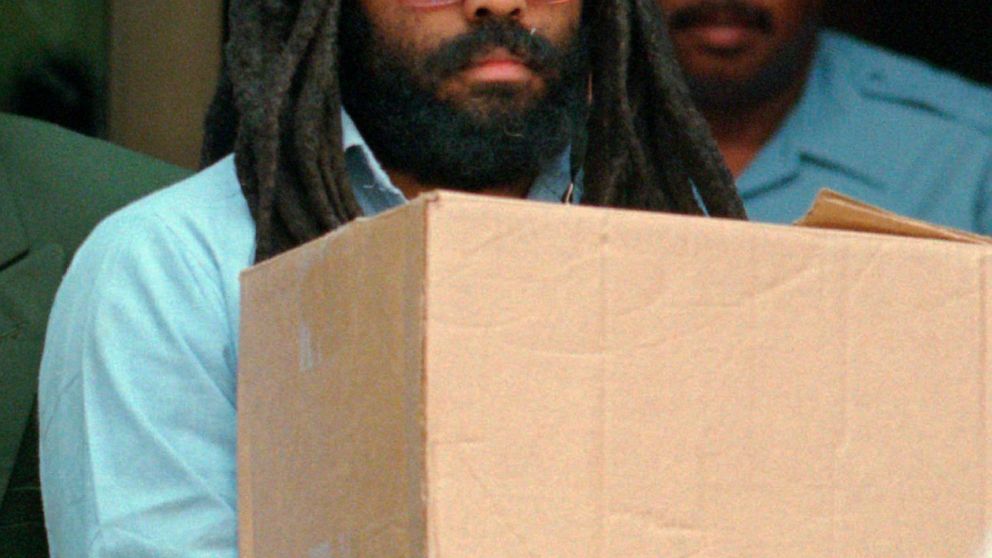
A former Black Panther and death row activist convicted of killing a Philadelphia police officer decades ago will get a new appeals hearing after the city prosecutor on Wednesday dropped his opposition to it.
Mumia Abu-Jamal, 64, is serving a life sentence after spending decades on death row in the 1981 slaying of Officer Daniel Faulkner, who had pulled his brother over in an overnight traffic stop.
Abu-Jamal, who was shot during the encounter, was largely tried in absentia at his 1982 capital murder trial, after being removed over his repeated objections and efforts to serve as his own lawyer.
A former radio journalist, Abu-Jamal’s prison writings made him a popular cause among death penalty opponents worldwide – and a foe of police unions and the slain officer’s widow. The attention to his case quieted after his death sentence was set aside over flawed jury instructions in 2011, and his appeals appeared exhausted.
However, in December, Philadelphia Common Pleas Judge Leon Tucker granted Abu-Jamal a new chance to argue his initial appeal after the U.S. Supreme Court said a former state justice had improperly heard an appeal in a murder case he had overseen as district attorney. The justice, Ronald Castille, had done the same in Abu-Jamal’s case.
District Attorney Larry Krasner initially fought Tucker’s order, fearing it could affect a large number of convictions. On Wednesday, he dropped his challenge, citing a revised ruling from Tucker that narrows the scope of his order.
Krasner agreed that Castille should not have worn “two hats” in the case, a fact made more egregious, he suggested, by the discovery of a 1990 note Castille sent Gov. Robert Casey about “police killers,” urging him to issue death warrants to “send a clear and dramatic message to all police killers that the death penalty actually means something.”
“Although the issue is technical,” said Krasner, a longtime civil rights lawyer, “it is also an important cautionary tale on the systemic problems that flow from a judge’s failing to recuse where there is an appearance of bias.”
Maureen Faulkner said Krasner broke a promise made this week to inform her of the decision before announcing it. She had been out walking her dogs for a few hours Wednesday morning, out of cellphone range, when she learned the news.
“I was just crying my eyes out, once again,” said Faulkner, 62, who was removed from a court hearing last year after her emotions overwhelmed her. “What about the survivors? What about victims in Philadelphia, and how they’re notified?”
Krasner’s office says he spoke with Maureen Faulkner on Tuesday before making a final decision to drop his challenge to the new appeal.
Castille told The Associated Press last year that Abu-Jamal’s lawyers never asked him to step down from the appeal. He served as district attorney after Abu-Jamal’s murder trial. He said his colleagues on the Supreme Court “knew I’d signed off on the appeal (filings), but I had nothing to do with the trial.”
Tucker, in his opinion, said “the slightest appearance of bias or lack of impartiality undermines the entire judiciary.”
Judith Ritter, a lead lawyer for Abu-Jamal, praised Krasner’s decision.
“We look forward to having our claims of an unfair trial heard by a fair tribunal,” said Ritter, a professor at Widener University’s Delaware Law School.





